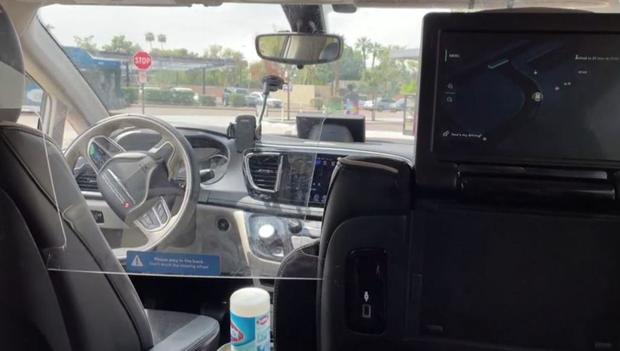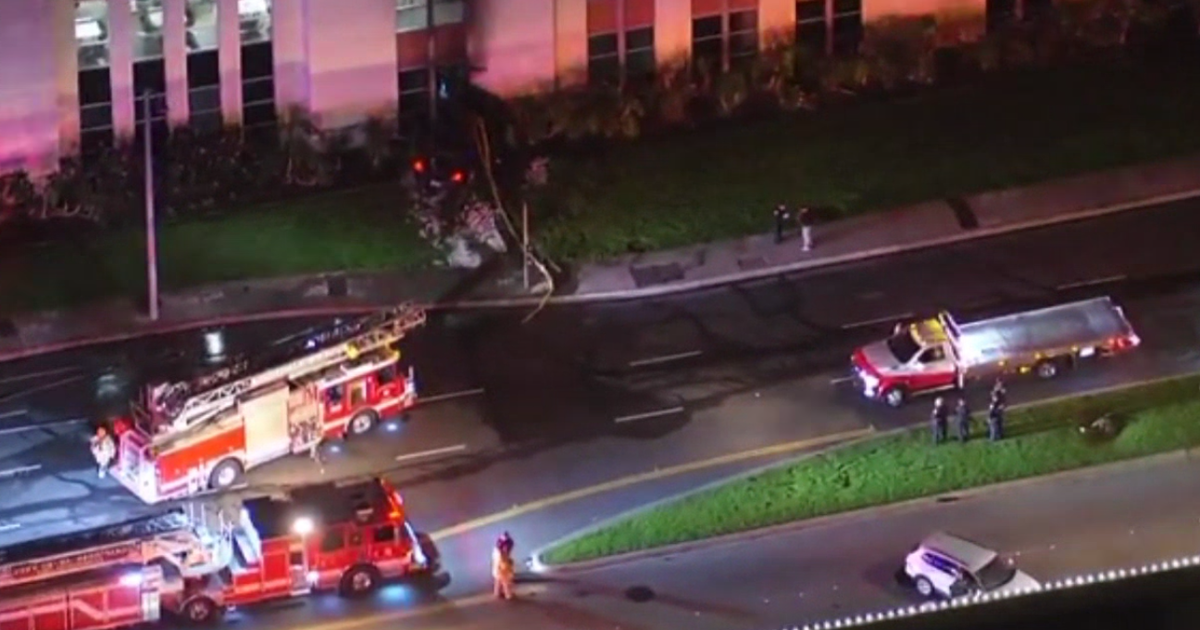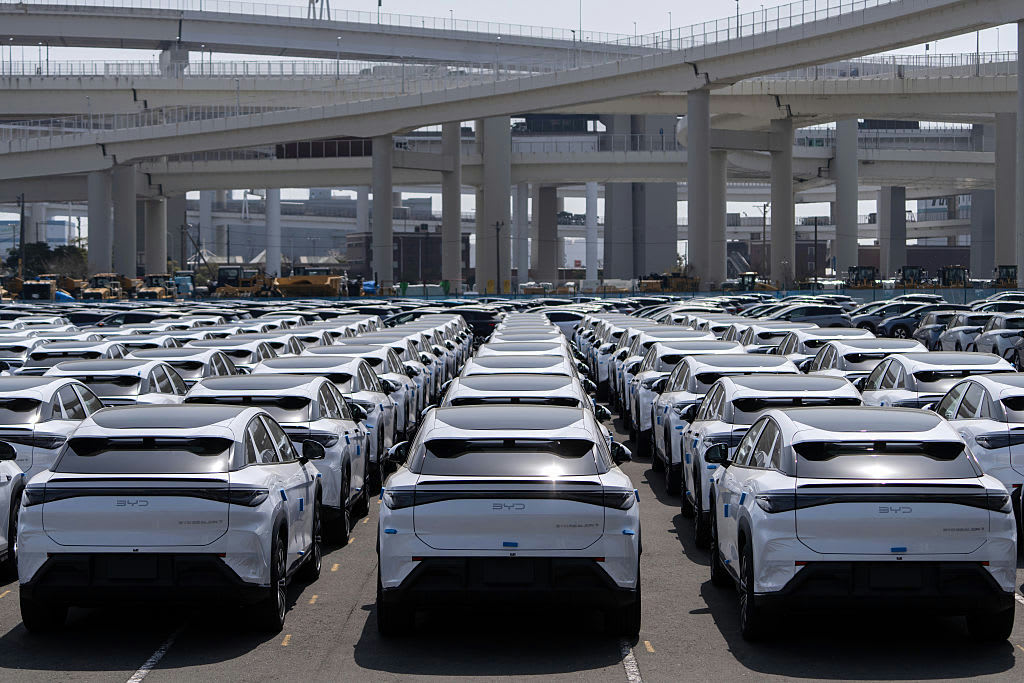Robotaxis are taking over China's roads. Here's how they stack up to the old-fashioned version.
Beijing — So-called robotaxis are popping up all over China. Tech giant Baidu, better known for its search engine and sometimes referred to as China's Google, is among the companies testing the self-driving taxi service.
Baidu is currently testing its self-driving taxis in 10 cities across the country, and it just got approval to roll out fully driverless vehicles in the major metropolises of Wuhan and Chongqing.
In the capital, Beijing, where the company is based, a human is still required by law to sit in the front passenger's seat — but they haven't got much to do.
With sensors, radars and cameras mounted all over the car, a computer is fully in charge of navigation. Advancements in technology mean the latest models cost only about $37,000 — about half as much as the previous generation. The price drop is paving the way for mass production.
The Baidu service itself offers an experience similar to ride-share apps like Uber. You download an app to your smartphone, pinpoint your location and destination, and a car shows up. The difference, at this stage, is that Baidu customers must choose from a list of existing stops, sort of like bus stops, instead of just picking any specific location they may want to reach.
CBS News gave the Baidu service in Beijing a try, and then for comparison, did the same route in a traditional cab with a driver.
The Baidu journey itself was smooth, but slightly slower than the old-fashioned method.
A screen on the back seats provides a visual representation of how the robotaxi's software is scanning and surveying the space around the vehicle to locate other cars, humans, bikes and anything else that could get in the way.
Other customers generally voiced positive views about the service to CBS News, calling it convenient and user-friendly, although they said more available "stops" should be added to the routes. None of them voiced concerns about safety.
Baidu claims 1 million rides have already been completed since it rolled out the service five years ago, and it has plans to expand into dozens more Chinese cities by 2030.
A report by the Boston Consulting Group on robotaxi services in general said our societies would benefit from them, with less congestion and more liveable cities thanks to the vehicles themselves, at least, running on electricity rather than fossil fuel, which would cut urban air pollution.
The self-driving taxis won't be lonely robots on China's roads. Just like in the U.S., food delivery services are already testing smaller autonomous vehicles in China that may soon deliver people everything from coffees to pizza.




